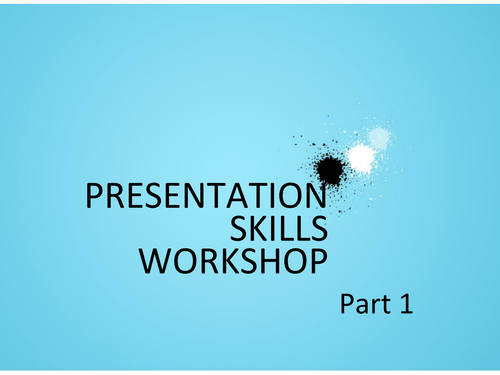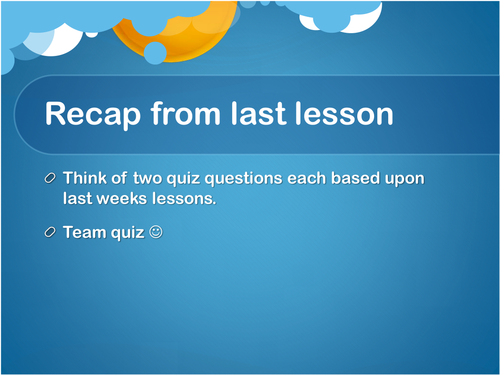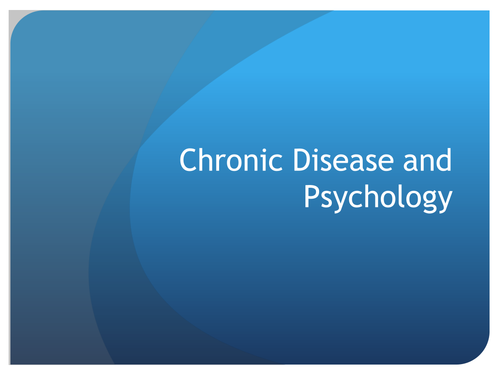
134Uploads
49k+Views
12k+Downloads
Biology

Atypical Psychology
A very detailed, heavy session which covers various aspects of Atypcial Psychology, including activities for students.
I would recommend re-formating to make slides more user friendly.
Originally designed for Access to Higher Education but can be tweaked to fit A-Level specifications.

First Aid Awareness
This lesson aims to provide them with an awareness so they are able to answer theory questions. I then arranged for St John Ambulance to come in to deliver a basic first aid course to students to gain their certificate.
This could be amended to be delivered in tutorial or detail added to make it applicable to higher level BTEC or A-Level courses.
This PowerPoint contains activities on how to call 999 and what to say, DR ABC protocol, risk assessment, basic treatment of unconsciousness, burns, bleeding, fractures, anaphylaxis and choking.
Their are practical activities throughout with instructions which include scenarios.
You would benefit from basic first aid supplies e.g. gloves, bandages etc.
CPR is not included in the lesson content due to health and safety implications and not having access to a resuscitation mannequin at the time of delivery.
Teacher will need some basic prior knowledge to deliver this lesson.

Presentation Skills Workshop.
A two part workshop style lesson based on presentation skills which was delivered across two days. It uses a health context, however, this can be adapted to any other subject area.
The main lesson objectives are:
To recap prior learning.
To identify at least 3 poor presentation skills (starter activity).
To reflect on areas of self-improvement in relation to presentation skills (self-audit).
To utilize a strategy for planning an effective presentation.
To deliver a professional presentation which delivers a clear message.
The powerpoint contains student prompts for a carousel activity which will introduce them to the AMPM technique, and guidance on how to incorporate data into their presentations.
All resources have been included, however you will also need two pieces of flipchart paper to enable students to mindmap 'Medium' and 'Message'. There is also minimal cutting needed for the presenter card sort which has also been included. The worksheet entitled 'audience' has also been included which completes the carousel activity.
English, Maths, Employability and Equality & Diversity skills have been embedded throughout.

Disability
Lesson Focus: To be able to use psychological theory to explain why misconceptions of disability exist.
Some student activities, contentious questions and relevant theory throughout.
Originally aimed at Access to HE Learners but would also be appropriate for other courses.
You may wish to use additional student focused activities to compliment this.

Sociological Theories of Deviance
Whole lesson which was delivered over a full day of teaching. Students will research key theories and apply this to real life context. This is suitable for A-Level and Access to HE Learners. PowerPoint also contains some details for teacher prompts.
Students will explore relativism vs absolutism, social constructs

Joints
This presentation features discussion of the types of joints, an investigation of their mechanisms and an activity on conditions which affect the joints.
Bundle

Supply Teacher/Cover Supervisor Bundle
There are a range of resources in this bundle which can be delivered to students of many abilities from 11-16. Some resources are also applicable to A-Level students. They cover; study skills, English and a range of PSHE/tutorial topics which require little planning.
The price of this bundle means that you are getting each resource for less than £1

Alternative Health Care
A teacher-led presentation on Alternative Health and Complementary Lesson which could be delivered prior to students embarking on independent activities (these would have to be created).
Originally aimed at Access to HE but could be tailored to suit a range of courses.
Students should be able to describe and evaluate various aspects of Alternative Health Care by the end of the session.

Chronic Disease and Psychology
A Full lesson with student activities surrounding psychology and how its theories can be used to explain/support Chronic Disease.
The lesson covers Pain Management/Gate Control Theory, Coping Strategies, Pain Perception, Wound Healing, Behaviour Change Models and Biofeedback.
It was originally written for Access to HE Health and Social Sciences (Level 3) students but can be tailored to fit other courses.

Cell Division Part 3
This is the final part of a series of 3 lessons on Cell Division and Heredity. Students will explore Monohybrid and Dihybrid crosses, Explain the cause of variation and research an influential figure in genetics.

Medicalisation
Whole lesson with activities covering medicalisation in terms of the 'Third Sex', 'Homosexuality' and 'Dying'.
Covers points such as cross-cultural perspectives and social control.
Originally produced for Access to Higher Education but could be adapted to meet some Sociology specifications for other courses.

Smoking
Originally produced for BTEC H&SC, Unit 9, Level 2 but would also be suitable for GCSE.
Lesson was delivered in 1.5 hours with objectives as follows:
To describe how smoking can effect health
To explain why a smoker is at risk of diseases
Please note, the quiz I have adapted from elsewhere but all other activities are original.
Student activities include a smoking advert analysis, a paired extension activity where students investigate Cannabis, labelling physical and emotional health effects on worksheet provided, producing a warning poster/warning leaflet, starter activity and a range of other activities.

Practical Investigation of Heart Rate and Blood Pressure
This resource contains a starter activity, overview of the carriage of O2 and Co2 and then guides students in designing, conducting and interpreting their investigation.

Cell Division
This is a lesson which is student led as students will be researching the processes of meiosis and mitosis, as well as becoming familiar with key terminology associated with this area. This was originally produced for A-Level but will also be appropriate for Access to HE and Foundation Degree's. It can be used to compliment handouts which you may already have produced for students on this topic area.

Mental Health Inequalities and Discrimination
Two full days worth of lessons which could be delivered across several weeks to suit a range of timetables. Originally designed for Level 3 students, this is a detailed presentations containing thought provoking activities for students. It could be tailored to fit several subject areas and student abilities.
No teacher preparation needed but students would benefit from A3 poster for one of the activities.
Content is as follows: considering the impact that an unequal society may have on mental health statuses via a group research task. This will include topics such as geographical factors, unemployment and socio-economic status.
Impact of mental health discrimination and the laws/policies surrounding this-student poster activity.
The second section of the powerpoint looks at social norms, the link between misconceptions of individuals with mental health conditions being criminals-leading to looking at the deviancy amplification theory.
Scenarios and thought-provoking questions throughout which can be tailored dependent on student ability.

What is classified as Normal and Abnormal behaviour?
This worksheet is best bought as part of a bundle with the accompanying PowerPoint. Students will indicate a list of behaviours and whether they deem them as normal or abnormal. They will then justify their responses. Can be used a starter or a plenary.

Living Healthily Tutorial
This was produced for a short tutorial based on living healthily. Students partake in small group discussions, complete creative activities and learn that health is subdivided into different areas.
The plenary focusing on online peer pressure and asks students to give advice to a friend. Very topical considering that the number of cases of online peer pressure/cyber-bullying are on the rise.
This session is suitable for teenagers to adults. You will need minimum of an hour to do this tutorial and perhaps some poster/leaflet making materials e.g. pens and paper if possible. Students could also word process their work if computers are available.
Lesson Objectives:

Cell Division Part 2
This is the second part of a series of three lessons on cell division. Learners are encouraged to be independent and this lesson incorporates discovery learning methods on genetic disorders, Punnett Grids and contextualises meiosis with a research activity on Spermatogenesis and Oogenesis.

Digestive System
This presentation provides an overview of the digestive system and can be used as a tutor-led introduction to a session or as a revision material to be given to students.
Bundle

Cell Division
A series of 3 lessons which are discovery learning/research based in nature as these lessons were originally taught to Level 3 learners (A-Level, Access to HE) who were applying for university.
Students wil explore the meiosis and mitosis, genetic variation, genetic disorders and how they are caused as well as explaining monohybrid and dihybrid crosses and famous geneticist.
This bundle will compliment any handouts you may have which will supplements students learning.




















